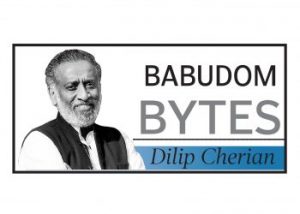Bengal’s Power Play

West Bengal’s decision to form its own selection committee to appoint the Director General of Police (DGP) is more than just another bureaucratic tweak — it’s a subtle political power play.
By sidestepping the Centre’s approval (and the UPSC shortlist), Bengal joins Punjab and Uttar Pradesh in asserting that states can pick their police chiefs without Delhi’s permission. That’s three states across three political spectrums — AAP, BJP, and TMC — all singing a surprisingly similar federalist tune.
This didn’t happen overnight. Bengal has had an acting DGP for months, and with little movement from Delhi, the Mamata Banerjee government has decided to take matters into its own hands. The new process will involve a state-constituted panel, likely with the Chief Secretary and Home Secretary at the helm.
However, the move potentially clashes with the 2006 Supreme Court judgment in Prakash Singh vs. Union of India, which sought to insulate police appointments from political meddling by involving the UPSC. The states now argue that the meddling is happening from Delhi, not within.
Is this the beginning of true cooperative federalism or a slow drift into Centre-state turf wars? Either way, it’s a fascinating test case in state autonomy — and could reshape how India balances power between Raisina Hill and the state capitals.
This isn’t just about a DGP. It’s about who gets to do the appointing — and who gets to push back.
Babu drama: same script, new government
An old turf war is bubbling over in Delhi’s babu circles, and this time, it’s personal.
The quiet frustration of Delhi Administrative Subordinate Services (DASS) officers has now reached full volume. They’ve taken their long-standing grievance straight to the top — the Union Home Secretary — hoping someone will finally read the fine print on 217 long-awaited posts that should’ve been theirs after a Delhi High Court greenlight last year.
Enter Delhi, Andaman and Nicobar Islands Civil Services (DANICS). They’ve challenged the order in the Central Administrative Tribunal, claiming those posts are meant for them. And just like that, the administrative food chain’s pecking order is back in the spotlight.
Sources have noted that DASS officers, who’ve been running the daily administration of Delhi since 1967, are tired. Over five decades of stagnation will do that to you. No restructuring, no promotions, no real roadmap. Around 100 officers are reportedly walking away each year — not out of joy, but sheer professional despair.
It’s not just about posts — it’s about dignity, progression, and a system that seems fine watching its backbone buckle.
The blame game? DASS blames a few DANICS officers for “deliberate obstruction” — from stalling service rules to blocking post notifications.
With a new government in Delhi and the matter now parked at North Block’s doorstep, this intra-cadre cold war is finally getting national attention. It should be easier to handle for a supposedly “double engine” sarkar.
Cadre chaos
More than a decade after Andhra Pradesh and Telangana went their separate ways, the Centre still can’t seem to split the IAS and IPS cadres without turning it into a tragicomedy. Officers like Siva Sankar Lotheti have become case studies in administrative limbo — tossed between states by duelling CAT orders and an indecisive DoPT.
The Central Administrative Tribunal recently reversed the Centre’s October 2024 decision to shift Lotheti to Telangana, ordering his reallocation to Andhra. But weeks later, no action. He’s not the only one stuck. Several officers are playing musical chairs — posted in one state, officially belonging to another, and litigating in the meantime.
This isn’t just a personnel issue — it’s a governance gap. When bureaucrats don’t know where they belong, how do they focus on public service delivery? The courts have tried to untangle the mess, but they’re working with flawed raw material: a post-bifurcation allocation policy that was ad hoc then and is unworkable now.
The Centre’s dithering doesn’t help. Officers can’t plan careers — or lives — when they’re subject to the whims of vague orders and multiple revisions. Telangana and Andhra Pradesh have moved on politically, but the bureaucracy is still stuck in 2014.
A lasting solution demands more than CAT orders and DoPT tweaks. It calls for a political reset — one that recognises officers as people, not pawns. Until then, the post-bifurcation hangover will continue.
News